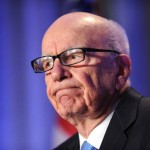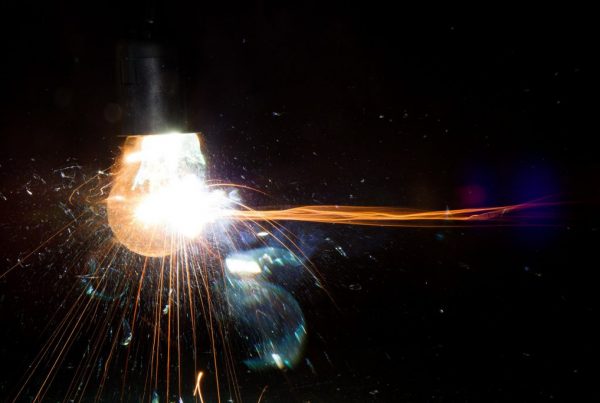Murdoch on the rebound is a classic lesson for all Crisis PR practitioners. First came the admiration of RM’s Twitter comms, now the respect he’s been given for publishing the Sun on Sunday. We will comment more on this later, but the positive  tone of the NYT article ( below) would be a welcome change for all involved in the crisis.
tone of the NYT article ( below) would be a welcome change for all involved in the crisis.
New Sunday Edition Signals That Murdoch Is Fighting Back
By JOHN F. BURNS and AMY CHOZICK
Published: February 25, 2012
LONDON — For the past week, it has been just like old times: Rupert Murdoch, shirtsleeves rolled up, bossing the newsroom of the country’s leading tabloid newspaper as if he had not been away building his media empire in America for much of the past 30 years, as if the impact of the phone hacking and police bribery scandals embroiling his British newspapers could be rolled back by the sheer force of the proprietor’s will.
Mr. Murdoch, who will turn 81 in two weeks, has taken on-the-spot command of the project he announced after flying in from New York 10 days ago: After more than 40 years as a Monday-through-Saturday paper, the rambunctious tabloid he built into the country’s richest and most widely circulated paper, The Sun, is becoming a seven-day-a-week operation, publishing this Sunday for the first time.
But The Sun on Sunday is more than a new step down the path Mr. Murdoch has worn as a newspaper pioneer — and it has more in its implications for the News Corporation, the $40 billion company he built from his long-ago start as the owner of two newspapers in Australia, than the relatively modest gamble in terms of start-up money, many newspaper analysts say.
For Mr. Murdoch, and the staff at his British publications, the true significance of the new Sunday paper seems to be that it, in effect, draws a line in the sand. With the founding of The Sun on Sunday, Mr. Murdoch appears to have declared that his tabloid will not be hounded into oblivion by the opprobrium that has beset The Sun and The News of the World, the weekend tabloid he shuttered when the phone hacking scandal broke wide open. About 30 of the papers’ current and former employees have been arrested and released on bail on suspicion of criminal wrongdoing in the hacking and bribery scandals.
Mr. Murdoch raised the battle cry in an e-mail to The Sun’s staff he drafted last week as he crossed the Atlantic in his corporate jet. “Having a winning paper is the best answer to our critics,” he said, announcing the new Sunday paper.
To this, he added a change of course aimed at quelling an incipient rebellion among The Sun’s staff. While continuing to hand the police “every piece of evidence we find” of wrongdoing by staff members “because it is the right thing to do,” he said, he was lifting the suspensions of all those arrested — at least “until or whether charged” — and ordering the company to pay all their legal expenses.
The decision to invest in The Sun is not without its risks: although the cost of the new venture is estimated at only tens of millions of dollars, some fear it could sap Mr. Murdoch’s focus from other parts of his empire. And even a brilliant success would not erase the litany of expensive legal and other problems caused by the reporting scandals.
With nine recent arrests at The Sun, Mr. Murdoch faces a crisis that is, if anything, more serious than the phone hacking scandal, involving accusations that staff members bribed an array of public officials, including police officers and military personnel, for leaks that formed the basis of many of the paper’s scoops. If any of those questioned by the police are charged and convicted, News Corporation could confront heightened scrutiny in the United States under the Foreign Corrupt Practices Act, which makes bribery of foreign officials by American companies and their overseas subsidiaries a criminal offense.
To many who have known him for years, the decision to mount a counterattack at a moment of vulnerability is classic Rupert Murdoch. That he should be doing this at Wapping, News Corporation’s base in east London, they say, adds to the drama. It was Mr. Murdoch’s decision in the 1980s to move his newspapers to computerized newsrooms and a digitalized printing plant in Wapping — precipitating one of the most violent labor disputes of the Thatcher era — that cemented his reputation for taking on tough battles, and winning them. Many in Britain still see the Battle of Wapping, as it became known, as having saved Britain’s newspapers.
He is also working with some practical advantages. Since his decision to abruptly shut The News of the World, News International, the British newspaper subsidiary of the United-States based News Corporation, has had underutilized capacity on its printing presses. It has enough staff for the new edition, from the weekday Sun and survivors of News of the World, and advertisers are said to be hungry for a new Sunday paper to fill the void left by The News of the World.
But most of all, the venture has the personal commitment of Mr. Murdoch, who cut an aging, exhausted figure when he appeared last summer before a parliamentary committee investigating the phone hacking scandal, only to return, according to some in the Sun newsroom, as his old scrappy, innovative and contrarian self.
But there are many at high levels of the News Corporation, and among investors, who regard his commitment to the new Sun edition as a distraction from the more important business of managing the company’s lucrative non-newspaper assets. Those include the Fox television channels in the United States and their counterparts at the British broadcaster BSkyB, and the Twentieth-Century Fox film studios in Hollywood, now the core of News Corporation’s profits.
Many in Britain had speculated that the News Corporation chairman would respond to the spate of Sun arrests by replicating the shutdown of News of the World.
Those who worry about the focus on the new Sun edition include three former News Corporation executives interviewed for this article, for whom News Corporation has become a sports and entertainment company with a newspaper problem, rooted in Mr. Murdoch’s predilections. “Designing and launching a new newspaper is his favorite thing in the world,” one of the former executives said, speaking as all three did on the condition of anonymity so as to be able to discuss News Corporation’s problems candidly. “This is catnip for him.”
Another former executive was blunter. “Let’s just accept that these are toxic properties,” he said, referring to the British tabloids. “They’re severely damaged, and have no value to anyone other than him,” he said, referring to Mr. Murdoch.
But admirers of Mr. Murdoch have taken another view. William Shawcross, a British author and longtime Murdoch friend, lauded him in a column this week in The Spectator, a journal that has often excoriated Mr. Murdoch on the tabloid scandals. “While other newspaper proprietors are in retreat all over the world, and while Murdoch himself faces the greatest-ever threat to his empire as a result of the phone hacking scandal, he charges the barricades, confounding his enemies,” Mr. Shawcross said.
Nor have the plaudits come only from friends. The Guardian, which led the reporting in Britain that forced Scotland Yard to reopen its investigations into the tabloid scandals, ran an editorial last week praising the man who has so often been its nemesis. “The old newspaperman remains the arch-magician of print — wrong-footing his critics, rallying his staff and stunning his rivals with his sheer speed and audacity,” the editorial said.
Insiders in the Sun newsroom have described Mr. Murdoch working alongside editors to commission columns for The Sun on Sunday, hire columnists and assign stories for a paper that insiders say will aim at retrieving up to 1.5 million of the 2.7-million weekly sales that were lost with the close of News of the World.
Meanwhile, Mr. Murdoch has taken on the task with what those working with him have described as a giddy enthusiasm. He scrapped plans to fly to Hollywood on Sunday for the Oscars to show support for Fox Searchlight’s “The Descendants.”
But nothing has captured his mood better than his Twitter feeds. “Great staff tired but excited for Sunday edition,” he wrote on Wednesday. Then, on Thursday, he showed his accustomed concern for the bottom line. “We’re completely sold out for advertising!” he wrote.
John F. Burns reported from London, and Amy Chozick from New York.





